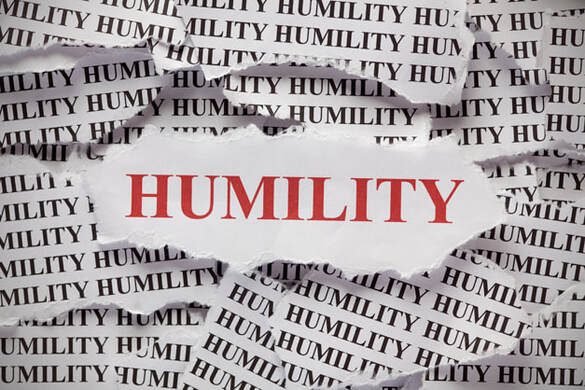If we think about it, both the examples of rest given above involve humility – we have to be humble enough to accept God’s command to regularly rest, and we have to understand that we are not so important to the functioning of the world that we cannot step back and take additional rest when we need to do so.
In fact, the Bible shows that full physical, mental, emotional, and spiritual rest is more than just the cessation of activity – we can stop work and still not find rest – and the Scriptures elaborate on this fact, showing there is a deep connection between rest and humility. This is most clearly seen in Jesus’ words: “Come to me, all you who are weary and burdened, and I will give you rest. Take my yoke upon you and learn from me, for I am gentle and humble in heart, and you will find rest for your souls” (Matthew 11:28–29). Although this is a scripture most Christians know well, we rarely focus on the relationship between the deep, fulfilling rest Christ promises, and the humility he says it is based upon.
Yet if we look at the Scriptures carefully, we see this principle repeated often. Sometimes we see it plainly in the grand sweep of biblical stories, just as Job only found rest and peace from his trials after finally being humbled. At other times we can see the principle in small details, as when King David wrote: “My heart is not proud, LORD, my eyes are not haughty; I do not concern myself with great matters or things too wonderful for me. But I have calmed and quieted myself” (Psalm 131:1–2).
Hannah Anderson, author of the book Humble Roots (Moody, 2016), perfectly summarized the clear relationship between humility and rest this way: “[God] frees us from our burdens in the most unexpected way: He frees us by calling us to rely less on ourselves and more on Him. He frees us by calling us to humility.” And Anderson shows us why this is so:
“Pride convinces us that we are stronger and more capable than we actually are. Pride convinces us that we must do and be more than we are able. And when we try, we find ourselves feeling, ‘thin, sort of stretched… like butter that has been scraped over too much bread.’ … We begin to fall apart physically, emotionally, and spiritually for the simple reason that we are not existing as we were meant to exist.”
Sometimes circumstances prevent or delay proper rest, of course, but it is important that we do not continually live this way – and that we come to see rest not only as a divinely mandated responsibility, but also as a gift that we ignore to our own hurt. If we live out our days in a lifestyle that avoids or diminishes rest, always struggling to increase some metric of our lives or never quite letting go of our own thoughts and pursuits, sooner or later we begin to experience the problems Humble Roots describes.
The truth is, despite our striving and whatever our occupation, our work will never be done, and one of the Christian’s most basic life lessons must be that we will never experience true rest as long as we focus on what we need to do and to accomplish, instead of learning to rely on God and not ourselves. The sin of pride has been well defined as simply overestimating ourselves and underestimating God; and it is only as we learn to humbly put our own lives and concerns aside in rest that we acknowledge God’s true nature and our own, and see things in proper perspective.
The nineteenth-century clergyman and author, Phillips Brooks, once wrote: “The true way to be humble is not to stoop until you are smaller than yourself, but to stand at your real height against some higher nature that will show you what the real smallness of your greatness is.” Rest not only allows us to do that, but also it helps us to do that.
Hebrews 4:9 tells us “There remains, then, a Sabbath-rest for the people of God” and although the rest indicated in this verse is primarily a future one, in the kingdom of God, the principle applies now also. We must remind ourselves that the will of God is not that we should work endlessly in this life and then enjoy rest later, but that we should experience the rest and peace in this life that reflects the rest and peace we will have in eternity.
We humble ourselves by resting physically and spiritually, and – as Christ himself promised – as we learn humility, we find rest.

 RSS Feed
RSS Feed
